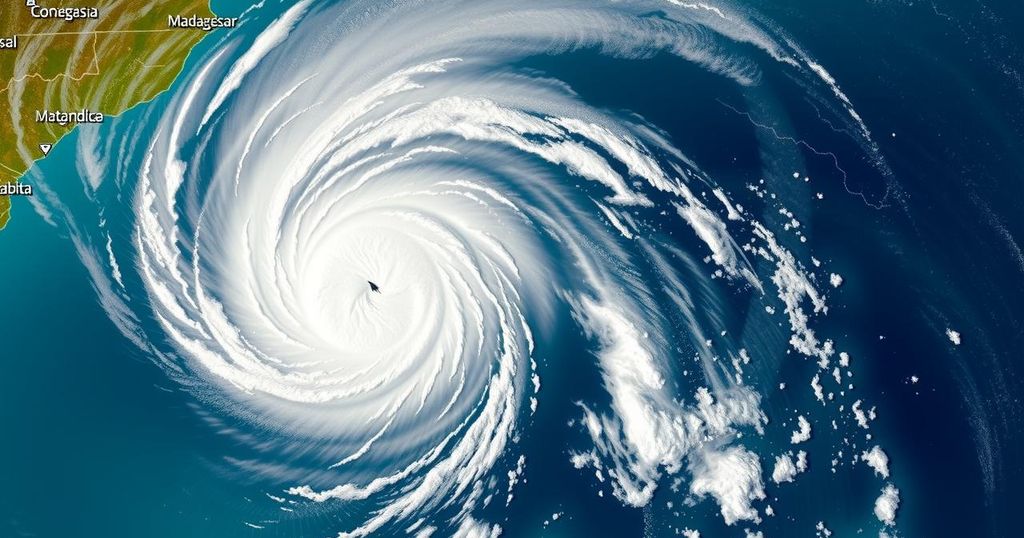Cyclone Chido Approaches Comoros, Madagascar, and Mozambique: A Call for Preparedness

Cyclone Chido, a powerful tropical storm, is forecasted to impact Comoros, Madagascar, Mayotte, and Mozambique with severe winds and rainfall. Preparations include school closures, evacuations, and mobilization of emergency resources due to potential threats including flooding and health concerns. Authorities are stressing the importance of community preparedness as climate change increases cyclone intensity.
A powerful tropical storm, Cyclone Chido, is currently advancing toward the islands of Comoros, Madagascar, Mayotte, as well as the African mainland, particularly Mozambique. The cyclone is anticipated to bring with it strong winds and significant rainfall, posing considerable hazards to the region. In anticipation of this natural disaster, authorities in Comoros have initiated school closures, with the cyclone expected to impact the islands by early Saturday. Meanwhile, Mayotte is under heightened alert, following the issuance of a red alert by the French national weather service.
Mozambique has also declared a red alert for its northern provinces of Cabo Delgado and Nampula, potentially affecting over 2 million individuals as Cyclone Chido approaches. The Mozambique National Meteorological Institute has predicted wind speeds reaching up to 200 kilometers per hour (124 miles per hour) at landfall. Additionally, Madagascar is preparing for potential devastation, with warnings being distributed to the populace urging readiness and precautionary measures. In the northern region of Diana, evacuations are in progress where the cyclone’s effects are expected to be the most severe, and authorities have been distributing food and emergency resources since the previous Tuesday.
French governmental resources are being mobilized to support Mayotte in its response to potential devastation from the cyclone. Emergency personnel and necessary equipment are being dispatched to facilitate recovery operations. Climate experts have indicated that the increasing intensity of cyclones in this region correlates with climate change issues, suggesting that Cyclone Chido may lead to hazardous flooding, landslides, and the spread of waterborne diseases, including cholera, dengue, and malaria.
As the cyclone season commences, local residents are strongly advised to remain updated and adhere to safety protocols to safeguard themselves against this imminent threat.
Cyclone Chido is part of a seasonal pattern that sees tropical storms affect regions within the Indian Ocean, including islands and coastal areas of southeastern Africa. Climate change has been implicated in the increasing severity and frequency of these cyclones, leading to elevated risks of flooding and other disaster-related health concerns. Authorities across affected nations typically prepare for such events by implementing preventative measures, including school closures and enhanced public awareness campaigns regarding safety protocols during cyclone threats.
In conclusion, Cyclone Chido poses a significant threat to several regions including Comoros, Madagascar, Mayotte, and Mozambique. With strong winds and heavy rainfall expected, authorities are mobilizing resources and preparing communities through alerts and evacuations. The increasing frequency of such extreme weather events due to climate change underscores the importance of preparedness and resilience in facing these natural disasters. Residents are urged to stay informed and take proactive measures to ensure their safety.
Original Source: www.inkl.com








